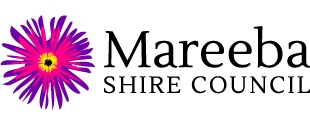Providing safe food to your customers is not only good for your food business’s reputation but it is also required by law. Queensland legislation exists to ensure food businesses sell food that is safe and suitable to consume. The legislation requires most food businesses to be licensed by Council, who will monitor the standard of your businesses against the Food Act 2006 and Australian New Zealand Food Standards Code.

Are you a Food Business Proprietor?
The Food Safety Standard, 3.2.2A – Food Safety Management Tools was introduced in December 2023. This Standard introduced new requirements for all food service, catering, and retail businesses that handle unpackaged, ready-to-eat, potentially hazardous foods. Generally, these include caterers, restaurants, cafes, takeaway shops, pubs, supermarkets and delis, food vans and other facilities serving food.
The standard requires relevant food businesses to demonstrate that specific food handling activities are being adequately managed. These businesses need to implement either two or three of the following tools depending on their food handling activities. The tools are:
- Mandatory food handler training – (Category 1 & 2 businesses)
- Appointment of a certified food safety supervisor – (Category 1 & 2 businesses)
- Substantiation of critical food safety controls – (Category 1 businesses only)
What category is my food business?
Category 1 business – A caterer or food service business that processes unpackaged potentially hazardous food into food that is both ready-to-eat and potentially hazardous food. The food is then served to a consumer to eat without any further processing. Category one (higher risk) businesses must implement all three management tools listed above.
Category 2 business – A retailer of potentially hazardous, ready-to-eat food, where unpackaged food is handled, but not made or processed onsite (other than slicing, weighing, repacking, reheating or hot-holding). Category two businesses must have a certified food safety supervisor and trained food handlers.
What is food handler training?
Food handler training must include safe handling of food, food contamination, cleaning and sanitising of food premises and equipment and personal hygiene. Food businesses must ensure all food handlers have completed a food safety training course, or have appropriate skills and knowledge, before they start handling high-risk foods. There are some links to free food handler training below. Further information attached – FSS 322A Food Safety Supervisor.
What is a certified food safety supervisor?
A food safety supervisor (FSS) must be a person who has recognised, formal certification as a FSS, obtained in the past 5 years. They should have recent, relevant skills and knowledge to handle food safely, particularly high-risk food. Further information attached – FSS 322A Food Safety Supervisor.
What does “substantiation of critical food safety controls” mean?
Category 1 businesses must keep records or demonstrate that requirements for safely receiving, storing, processing, displaying and transporting potentially hazardous food, and for cleaning and sanitising are being met. These are called ‘prescribed provisions’. The business must show how these have been achieved or verified. The business must make a record, unless it can show in another way it is meeting requirements and be able to demonstrate this to an authorised officer (food regulator).
When do I need to implement the tools?
Relevant businesses have until the 8 December 2023 to comply with the new Standard.
Need more information?
